MercoPress. South Atlantic News Agency
Tag: Central America
-
Wednesday, February 14th 2018 - 09:04 UTC
Another blow for Oxfam: chairman Fuentes arrested for his time as Guatemala finance minister
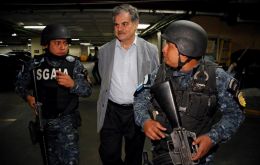
The chairman of the charity Oxfam International, Juan Alberto Fuentes, has been arrested in Guatemala. Fuentes was detained as part of an investigation into a corruption scandal dating back to his time as Guatemala's finance minister, but no charges have been brought so far.
-
Monday, February 12th 2018 - 16:13 UTC
British government project to prevent corruption in Guatemala, Honduras and El Salvador
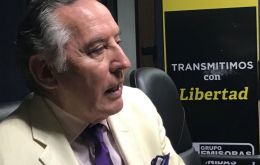
The British Government is supporting a project to encourage municipalities from Guatemala, El Salvador and Honduras to adopt practices which can prevent corruption. The initiative, under the “Islands of Integrity” concept, aims to address the root causes of corruption by encouraging free-market policies and enhancing efficiency.
-
Friday, October 6th 2017 - 08:28 UTC
Tropical storm in Central America kills at least 22 people, and is moving towards Mexico

Tropical storm Nate has killed at least 22 people in Central America with torrential rains that forced thousands from their homes, uprooted trees, knocked out bridges and turned roads into rivers, according to officials on Thursday. The storm is moving to Mexico and United States.
-
Saturday, August 3rd 2013 - 01:41 UTC
EU FTA agreements with Colombia and Central America became effective August first

Free trade agreements, FTA, signed by the European Union with Colombia, and with Central American countries Honduras, Nicaragua and Panama became effective August first as part of the EU strategy to eliminate tariffs on trade with Central American and the Andean region.
-
Friday, June 28th 2013 - 12:26 UTC
Petrocaribe: Central America and the Caribbean’s Energy Dilemma

In the eve of the Managua summit which will focus on creating a new Economic Zone, Petrocaribe, the late Venezuelan president Hugo Chavez’s oil treaty, continues to play a vital role in the economic development of its 18 member states from the Central America and Caribbean region. But given the current political and economic climate in Venezuela, the question remains if Petrocaribe’s cheap oil is sustainable?
-
Tuesday, December 11th 2012 - 18:20 UTC
EU parliament prepares to approve trade accords with Central America, Peru and Colombia
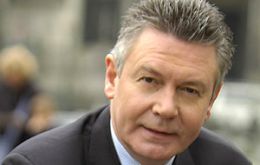
Spanish members of the European parliament and Trade Commissioner Karel De Gucht called on Tuesday on the full house to ratify the association agreement of the EU with Central America, and the EU free trade agreement with Colombia and Peru.
-
Friday, October 19th 2012 - 00:02 UTC
Obama administration admits trade, security and migration as pending issues with Latam
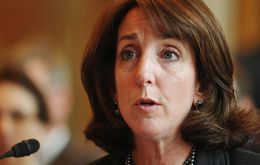
President Barak Obama ends his four years in January with free trade and security, particularly in Central America, as pending issues to develop in Latin America, said Assistant Secretary of State for Western Hemisphere Affairs Roberta Jackson in a press round with foreign correspondents.
-
Monday, April 11th 2011 - 20:34 UTC
Crime and violence cost Central American countries 8% of GDP, says World Bank
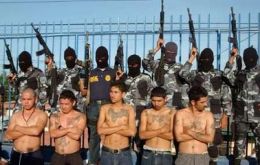
Growing crime and violence in Central America not only have an immediate human and social toll but they also pose a tremendous threat to development potential in the region since it is estimated that these sources of instability cost 8% of GDP, once health, institutional, private security, and material expenses are accounted for.
-
Tuesday, April 27th 2010 - 21:57 UTC
IMF Warns Latam “Cheap and Abundant Credit” Rises Risk of Boom-Bust Cycle
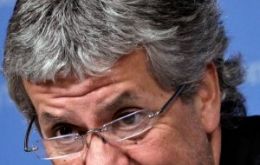
Latin American economies as a whole are recovering nicely from the global economic downturn but “cheap and abundant external finances raise the risk of a boom-bust cycle”, said Nicolas Eyzaguirre, IMF Western Hemisphere Department Director.
